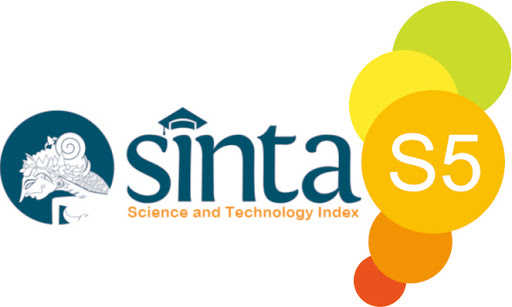ANALISIS SWOT TOKO KELONTONG MADURA: STRATEGI BISNIS RITEL UMKM DALAM MENGHADAPI PERSAINGAN DAN DAMPAKNYA PADA MASYARAKAT DI YOGYAKARTA
Kata Kunci:
Toko Kelontong Madura, Strategi, Persaingan BisnisAbstrak
Persaingan di dunia bisnis retail diwarnai dengan hadirnya toko Kelontong Madura yang menjadi fenomena baru di beberapa kota besar di Indonesia. Penelitian ini bertujuan untuk memahami strategi yang digunakan oleh toko kelontong Madura dalam menghadapi kompetisi bisnis. Untuk mencapai tujuan tersebut, peneliti menggunakan analisis SWOT sebagai alat utama. Analisis SWOT membantu dalam mengevaluasi faktor internal maupun eksternal yang terdiri dari kekuatan (strengths), kelemahan (weaknesses), peluang (opportunities), dan ancaman (threats) dalam konteks persaingan dengan minimarket modern di Yogyakarta. Penelitian ini menggunakan pendekatan deskriptif kualitatif dengan menggunakan data primer yang diperoleh melalui wawancara langsung kepada beberapa pedagang toko kelontong Madura di Yogyakarta. Selain itu menggunakan data sekunder diperoleh dari jurnal serta penelitian-penelitian sebelumnya. Berdasarkan hasil analisis SWOT, nilai faktor kekuatan memperoleh skor 2,22, sedangkan faktor kelemahan memiliki skor 1,46. Faktor peluang mencatat skor 2,20, dan faktor ancaman mendapatkan skor 1,42, yang menempatkan posisi toko kelontong Madura berada di kuadran I. Posisi ini menunjukkan bahwa toko kelontong Madura memiliki kekuatan signifikan serta peluang yang besar untuk berkembang lebih jauh. Keberadaan toko kelontong Madura juga berdampak positif secara sosial dan ekonomi terhadap masyarakat sekitar. Dari sisi sosial, toko kelontong berkontribusi pada gaya hidup konsumtif, kemudahan akses kebutuhan harian, serta membangun interaksi sosial. Sementara itu, dari sisi ekonomi, toko kelontong Madura berperan dalam mendorong perputaran ekonomi dan meningkatkan aktivitas ekonomi di lingkungan tersebut.
Competition in the retail business sector has been marked by the emergence of Madura grocery stores, which have become a new phenomenon in several major cities across Indonesia. This study aims to understand the strategies employed by Madura grocery stores in navigating business competition. To achieve this objective, the researchers utilized SWOT analysis as the primary tool. SWOT analysis assists in evaluating both internal and external factors, including strengths, weaknesses, opportunities, and threats, in the context of competition with modern minimarkets in Yogyakarta. This research adopts a descriptive qualitative approach, relying on primary data obtained through direct interviews with several Madura grocery store owners in Yogyakarta. Additionally, secondary data was gathered from journals and previous studies.Based on the SWOT analysis results, the strength factor scored 2.22, while the weakness factor scored 1.46. The opportunity factor a scored of 2.20, and the threat factor received a score of 1.42, placing Madura grocery stores in Quadrant I. This position indicates that Madura grocery stores possess significant strengths and substantial opportunities for further growth. The presence of Madura grocery stores also has positive social and economic impacts on the surrounding community. From a social perspective, these stores contribute to a consumerist lifestyle, provide easy access to daily necessities, and foster social interactions. Meanwhile, from an economic standpoint, Madura grocery stores play a role in driving economic turnover and enhancing economic activities within the local environment.





